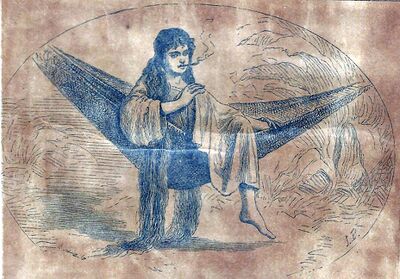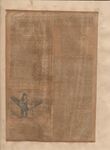< In Mr. Massey's excellent comments (continued from page 4-120) >
after the manner of human fingers. But how about the cases, of which many are on record, in which the writing is produced without any pencil at all?
Mr. Massey speaks of “views advanced” by me on this subject. Without, I hope, being considered captious, I must demur to this expression. I have merely experimented in the direction pointed out by others, and my experiments, as far as they went, seemed to verify their theories. But I agree with Mr. Simmons that all that was proved was the possibility of interposing our own will, and causing it to predominate over any other will that might be present. But here we stumble upon a very important fact, viz., that the will of the embodied spirit is as good, i.e,, as strong as that of the disembodied spirit, if such be present. Where then, is the superiority of the disembodied over the embodied 1 Wherein lies the presumption that we are communing with immortal spirits, if those spirits are so much weaker than our own?
I am aware that I am here trenching upon dangerous ground, which is also somewhat foreign to the question before us. But it grows, to my mind, out of the inquiry started by Mr. Massey, “What is the intelligence?” and which is really at the back of the question, “What moves the pencil?”
At my first sitting with Mr. Watkins, I wrote on slips of paper the names of my father, a brother, and a sister in the other life. In a subsequent communication signed with the 'name of that sister on a slate held by me, and not touched at all by Mr. Watkins; the names of my father and brother were repeated, but that of another brother who would probably have been in the same group, if they had really visited me, was not mentioned. Why was this? was it because I had not mentioned him, and that, therefore, the spirit of the medium did not read his name in my astral surroundings? This seems more likely than that a pure and noble spirit such as his should refuse to recognise me because I had not written his name on a piece of paper. An excellent opportunity was here given for my sister to prove her identity by introducing a name not already mentioned, and which would have been the most natural thing for her to do.
On the other hand, I do not pretend that this experiment proves anything. It merely indicates that the knowledge of the communicating intelligence is bounded by the knowledge, expressed or latent, of embodied minds. Further experiments may land us in a region whose supermundane position will be beyond dispute or doubt.
I think it of the utmost importance that we should not “make haste” to fix our views with regard to the various phenomena which we are only in course of observing. It is often difficult, while considering certain specific theories, to avoid appearing as if those theories were the only ones worth considering. But thoughtful persons will not be led away by such appearances. The mind cannot occupy itself exclusively with two propositions at one and the same moment, and it is necessary, in the important inquiry in which Spiritualists are engaged, for them to examine with more than usual thoroughness every theory which may possibly lead them to a complete generalisation of the facts with which they have to deal.
I, therefore, deprecate most strongly the tacking together of names and views merely because they are, as they must be, sometimes temporarily associated for the purposes of investigation.
38, Great Russell-street, London

The “Spiritless Souls” of the Theosophists
...
<... continues on page 4-122 >
Editor's notes

